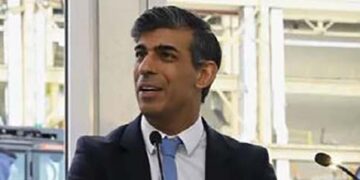 AS for the stable price of cocaine or the vulnerable mobile phone swiped from a table in a pub under your proverbial nose, London’s much-vaunted police have told victims that they do not consider anything stolen a crime if the object is worth less than £200. In real life, make the value of their official concern much higher. Try telling the police that your laptop has been stolen. They will advise you in sonorous tones to be more careful. Steal from the rich and get their attention; steal from the poor and get a pat on the back.
AS for the stable price of cocaine or the vulnerable mobile phone swiped from a table in a pub under your proverbial nose, London’s much-vaunted police have told victims that they do not consider anything stolen a crime if the object is worth less than £200. In real life, make the value of their official concern much higher. Try telling the police that your laptop has been stolen. They will advise you in sonorous tones to be more careful. Steal from the rich and get their attention; steal from the poor and get a pat on the back.
The biggest British industry today, and possibly the largest employer, is operated by drug mafias within eyecontact of the police. As former Shadow Home Secretary Yvette Cooper put it, people feel that the police do not exist in London. She promised to change this, pronto. You can be sure the Labour Government will also raise taxes on millionaires, but by then Mr and Mrs Ex-Prime Minister might be back in California scouting for lucrative membership of company boards.
Ignorance, indifference
Sunak stripped himself of any remaining dignity on the day he turned his back on commemorative ceremonies on the beaches of Normandy where the allies of World War II had gathered to remember the 80th anniversary of D-Day, the perilous first act, in which thousands lost their lives, of the liberation of Britain and Europe from Nazism. His decision to abandon this emotional highpoint of 20th-century history because of some silly television interview was an extraordinary combination of ignorance, indifference and bewildering naiveté. It left him naked in the eyes of the people he had presumed to lead. He looked like what he was: an interloper. His sharpest detractors quickly voiced what most of Britain thought. He did not belong to the culture of Britain.
In British eyes, he ceased to be British. It was never about colour. It was about a profound vacuum in the soul of an upstart. In a trice, the man whom John Bull Conservatives had accepted, perhaps in some silent penitence for periods in their past, proved to be a pretender. Sunak, still confident that he is superman when he was a mere byproduct of luck, will retire into the lucrative oblivion of the speech circuit and the company board; the lasting damage has been done to the most successful electoral machine in British democracy. His mentors have much to answer for.
Image has cracked
Each election is a mirror. The mirror has not broken; the image has cracked. Governance is in crisis in all democracies: aspirations are relentless in their upward mobility, productivity is shifting towards mechanical menials, the work ethic has regressed, and governments have become status quoist since no one has a new idea.
One cannot quantify it, much less provide rigorous evidence, but the legitimate and necessary spread of social and economic aspirations might also be inducing the notion that the requirements of life should either be free or provided at negligible cost. That is not the way a capitalist economy works. If the 21st century wants a post-capitalist age, then it has to produce a Karl Smith, an heir to Karl Marx and Adam Smith, pretty quickly to stop dysmorphic disorder or, worse, mythomania.
Governments have a commonsense option in the short run: give power back to the small institution. This is democratic. More usefully, it helps spread the blame when things go wrong; accountability does not begin and end with one man or woman. In the prevalent systems, power travels to the head, defying the gravity which keeps anyone grounded and stable. It is a sign of the age that the resurrection of the Labour Party is being led by the middle class, not the worker. The English working class is in transition. It wants to rise out of the accent that has defined it for too long. It has benefited from a transformational education. It wants an alliance with lawyers and teachers and professionals after centuries of dependence on nobs.
Johnson cameo
The astute Tory leader Boris Johnson wrought a brief alliance with Conservatives in the cause of anti-Europe nationalism, but that did not bring the economic surge which was promised. Boris, who likes a laugh at the pub after the funeral, went on holiday during the campaign, returned just in time to make a speech after a “personal message” from the protégé who stabbed him to become Prime Minister. Sunak had to swallow a gallon of pride. Johnson cheered the faithful with rousing wit and sharp invective against Labour but for some inexplicable reason never mentioned the Prime Minister’s name in his speech. One English newspaper noted that he had turned up to dance on Sunak’s grave, perhaps on the way to his own resurrection.
The bad news for Conservatives is that the demographic coalition which has put Labour in office is likely to be stable, in which case the next change of government could come only in 2040, possibly led by a party like the Liberal Democrats which has swallowed the moderate Tory rump. In the 2024 summer triumph, all that Labour leader Keir Starmer had to do was be banal, avoid the curse of a self-goal, and accuse Sunak of being out of touch, which had the merit of being true. Rishi Sunak was out of line, out of reach, out of depth, out of ideas, and out of time.
















